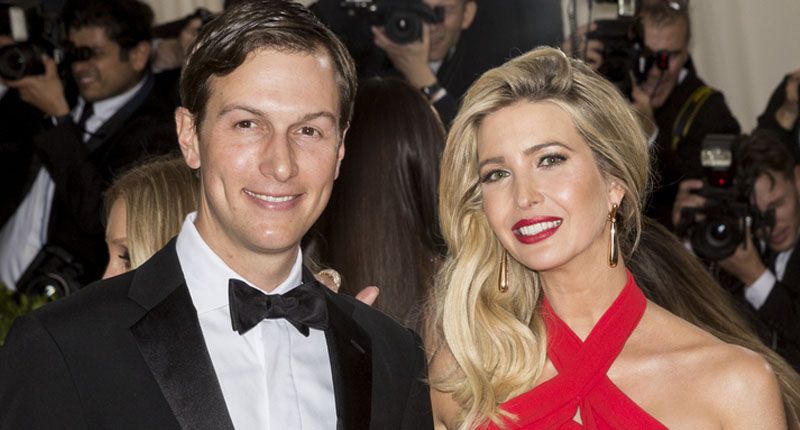Jared Kushner took out a real estate loan through a partner of a Russian investment firm represented in a money laundering case by the same Kremlin-linked attorney he met with during the campaign with Donald Trump Jr. and Paul Manafort.
The president's son-in-law secured a multimillion-dollar real estate loan through Lev Leviev -- a Soviet-born tycoon known as the "king of diamonds" -- that he used for the 2015 purchase of the New York Times building, reported The Guardian.
Special counsel Robert Mueller may be looking into Kushner's $295 million purchase of several floors of the newspaper's former headquarters through Africa Israel Investments (AFI), which is operated by Leviev, and its partner Five Mile Capital, the newspaper reported.
Kushner later borrowed $285 million to refinance the purchase through Deutsche Bank, which has come under scrutiny for alleged ties to Russian money laundering.
The German bank was ordered by U.S. and British regulators to pay $628 million in fines earlier this year for failing to stop suspicious transfers of more than $10 billion out of Russia.
Leviev was a business partner of the Russian-owned investment company Prevezon Holdings, which settled a massive money laundering case with the federal government in May for $5.9 million.
The case was launched in New York under then-U.S. attorney Preet Bharara, who was fired in March by President Donald Trump.
Bharara and other investigators believed that Prevezon was laundering money stolen from the Russian treasury -- in a scam uncovered by the late attorney Sergei Magnitsky -- through Manhattan real estate deals.
The Russian investment firm was represented by Natalia Veselnitskaya, a Kremlin-linked attorney who met June 9, 2016, with Kushner, Manafort and Trump Jr. to deliver damaging information against Hillary Clinton and talk about lifting sanctions against her clients under the Magnitsky Act.
That 2012 U.S. law was aimed at Russian oligarchs believed to be involved in Magnitsky's death three years ago while imprisoned on tax charges believed to be in retaliation for exposing the Prevezon fraud.
Court documents show Prevezon bought a 30-percent stake in four AFI's Dutch subsidiaries for nearly $3.5 million in 2008, and Leviev's company was unable to return the money five years later to Russia after it was frozen as part of the money laundering probe.
U.S. prosecutors also froze some apartments near Wall Street sold by Leviev to Prevezon, but they were released after the May settlement.
U.S. prosecutors accused Prevezon and sole shareholder Denis Katsyv of moving $230 million in stolen Russian tax money out of the country in chunks through a network of shell companies -- including the Leviev properties.
Kushner and Leviev both declined to comment on the Guardian report, and both Prevezon and Katsyv have maintained they had no involvement in money laundering.
Trump attorney Marc Kasowitz’s law firm Kasowitz Benson Torres, represented the owners of the former New York Times building in a 2015 transaction that gave Trump son-in-law Kushner partial ownership of the Times Square property.
Leave a Comment
Related Post
